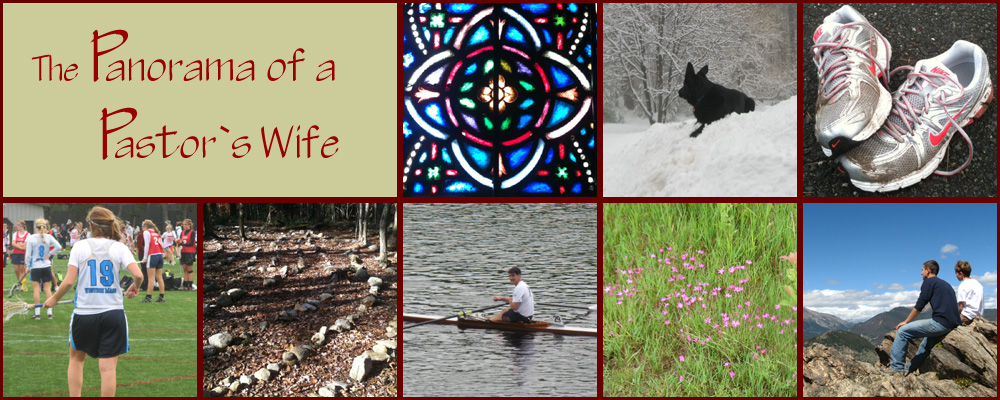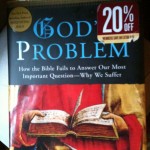A Storm Over Intentions
Mother Nature apparently shares my interest in things colliding, because, as I write, we’re about to get walloped with Hurricane Sandy from the South Meets Winter Storm from the West Meets Arctic Chill from the North. Maybe, by the time you read this, it’ll all be over, however it was. And you probably think I’m crazy for writing anything at the moment. But I’m safe inside with my dog at my side, and my various family members are all — I think — safe in their four different places.
Fact is, Mother Nature is really, really good at this “KA-BOOM!” kind of thing and has been at it a whole lot longer than I have.
Since I just read Mary Shelley’s Frankenstein with a class, and have monsters on the brain anyway, it seems almost fitting that “Frankenstorm” should be on its way here. Besides, I’d rather call it that than use the name of my brother, who is a very gentle guy – a peaceful Vermont farmer, nothing like a hurricane.
Whatever destruction the weather brings, however, it will find many of us already dealing with the aftermath of another storm: this one resulting from the almost unbelievable comments about rape uttered by Indiana Senate candidate Richard Mourdock the other day. In case you can bear to be reminded, he said, “I think that even when life begins in that horrible situation of rape, that it is something that God intended to happen.”
Besides drawing in the eager media right away, this is the kind of statement that makes someone like me – that is, someone without any real training in deciphering what God may or may not ever intend — really sit up and pay attention. In addition, as any of my neighbors in this college town would know, it just so happens that the issue of rape has been in the news this past week because of events on two of our distinguished campuses. No one here, as far as I can tell, has tried to add God’s intentions into the deliberations about a sickeningly serious problem.
So it was a good thing that I got to talk to my husband about this whole business over the weekend. Without going into detail about what his views on the matter are, I can say that we had a lively exchange (on our way to look at houses, keeping up the search). What I really wanted to know was how can anyone – politician, regular person, or maybe even a member of the clergy — presume to identify what God’s intentions are? Or are we just supposed to accept that whatever happens to us, good or bad, God must have been aware and involved?
Not surprisingly, I had it confirmed that this is very challenging theological territory and that anybody ought to be very careful about trying to connect what we see around us, what we experience, with God’s plan. Watch out for that, by all means.
In reading over Mourdock’s sentence, we agreed that the main problem really lies with his use of the word “it.” The pronoun seems to refer to “rape,” which makes the statement shocking and appalling – but no doubt he would say that he meant “it” to refer to something like “the creation of life.” Since he and millions of others believe that any human life is sacred, no matter under what conditions life begins, seeing God as present in some way is significantly different than seeing God as supporting something as awful as rape. I don’t know about you, though, but I have a very hard time separating out the two parts of the episode. Can a woman’s trauma ever be put aside or considered to be secondary?
Trying to shed some light on the whole stormy subject of suffering and God’s level of involvement in it, I took out Bart Ehrman’s book called God’s Problem: How the Bible Fails to Answer Our Most Important Question – Why We Suffer. (This would not be a volume my husband would be interested in, by the way, but the price had been lowered and I thought it might help clarify some issues for me a while back.) The author is, according to the book jacket, “a leading authority on the early Church and the life of Jesus.” He was also a Baptist pastor; some years ago, however, he went through a painful transformation when he lost his faith as a result of not being able to abide what he found to be inadequate, and contradictory, explanations for suffering in the Bible.
The book (the sense of the title still escapes me, actually: isn’t suffering more our problem than God’s?) is not all about his own crisis of faith; he tries to put key sections of the Bible under a kind of microscope and have readers reach their own conclusions. But here’s a place where he’s very clear about why he changed his mind:
If God feeds the hungry, why are people starving? If God takes care of his children, why are thousands of people destroyed by natural disasters every year? Why does the majority of the earth’s population suffer in abject poverty?
I no longer believe in a God who is actively involved with the problems of this world. (p. 126)
Instead, he advocates a full throttle human effort to alleviate suffering wherever it exists. So what has this got to do with Mr. Mourdock’s comments? I’m guessing that Professor Ehrman would say that this kind of thinking illustrates why we need to be cautious about seeing God’s hands on the steering wheels at all times. Who among us would ever sleep better knowing that God would intend any one of us to come to harm rather than just be there, fully present and available to us, if we did? Hard as it is to accept the terrible things that people can do to one another, it can also be just as mind-blowing to witness how extraordinarily generous and courageous they can be – all on their very own. At least that’s what my panorama shows me, through just about any kind of weather.



Polly,
I just love this piece. You have beautifully articulated an idea that is central to the really big problems in the world….boiling it down to the perfect simplicity of a children’s book as a symbol for learning and exposure that benefits everyone. I think I’ll go to the library. 🙂
Hey, thank you for some very thoughtful theological reflection. No way am I going to try to “explain” the ways of God — talk about hubris! But I do believe that the divine Mystery is what ultimately motivates and inspires our efforts to do good, to reconcile, to heal, and to seek justice — even if we believe that we are doing this all by ourselves, all on our own. I believe that whenever we are moved by love, we are participating in something larger than ourselves. And when people starve and suffer and live in poverty, and when the earth is torn apart by human greed and ignorance, I trust that God somehow shares in the suffering, too. I continue to ponder the insight of the contemplative spiritual teacher James Finley, who observes that God protects us from nothing, but invincibly sustains us in everything. Learning to perceive that is a fruit of contemplative prayer — and motivates me to keep returning to prayer. I want to experience and perceive that, too!